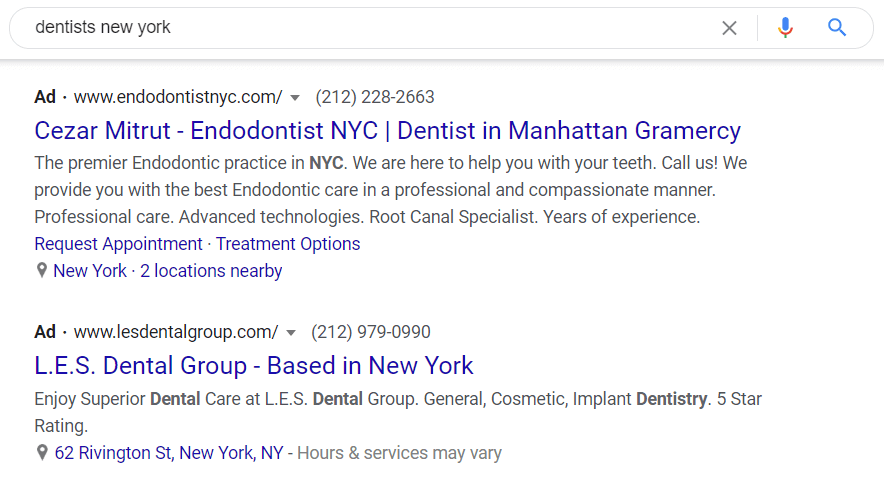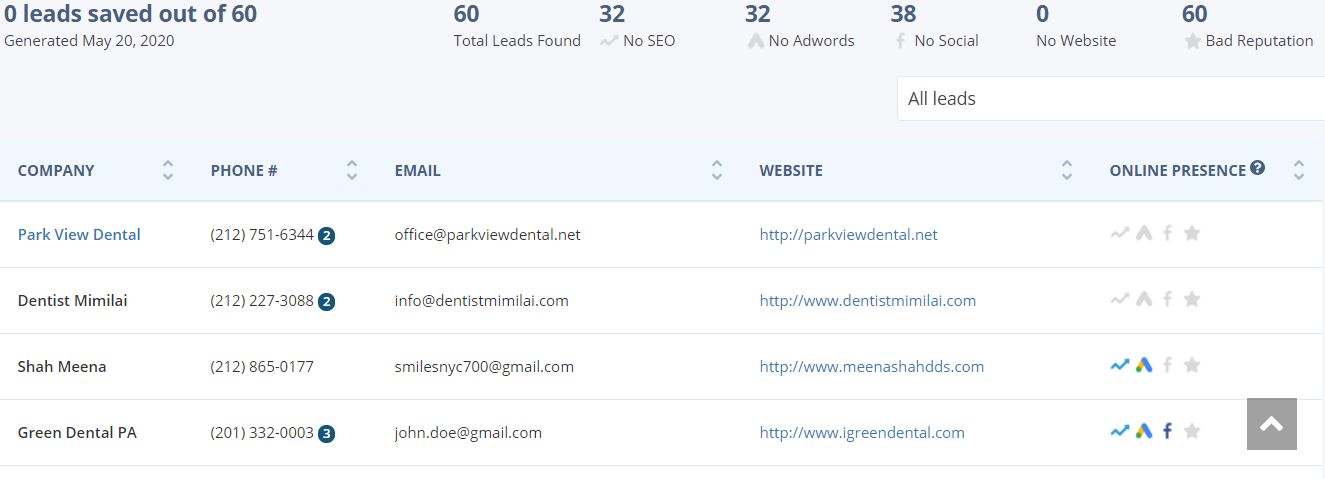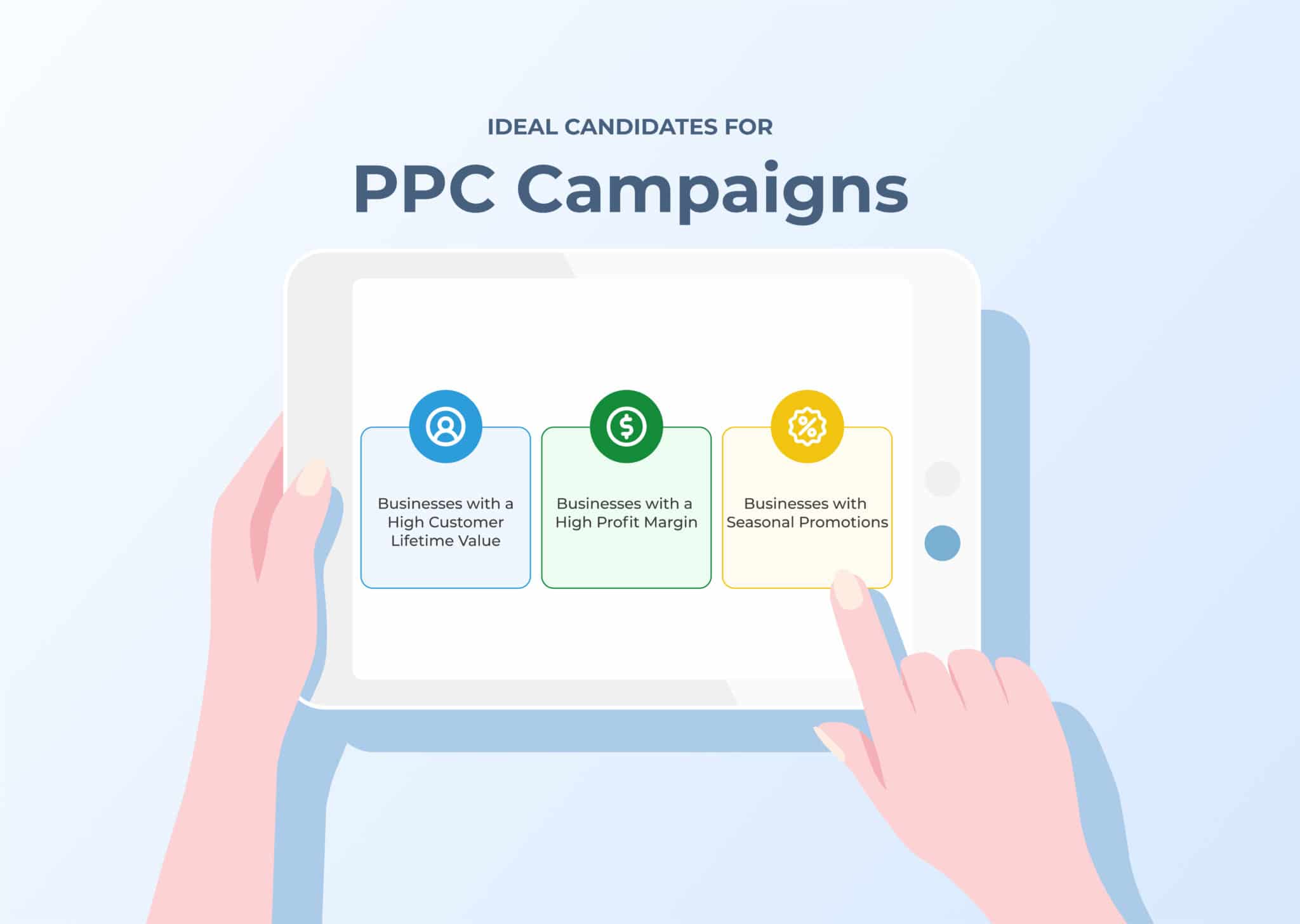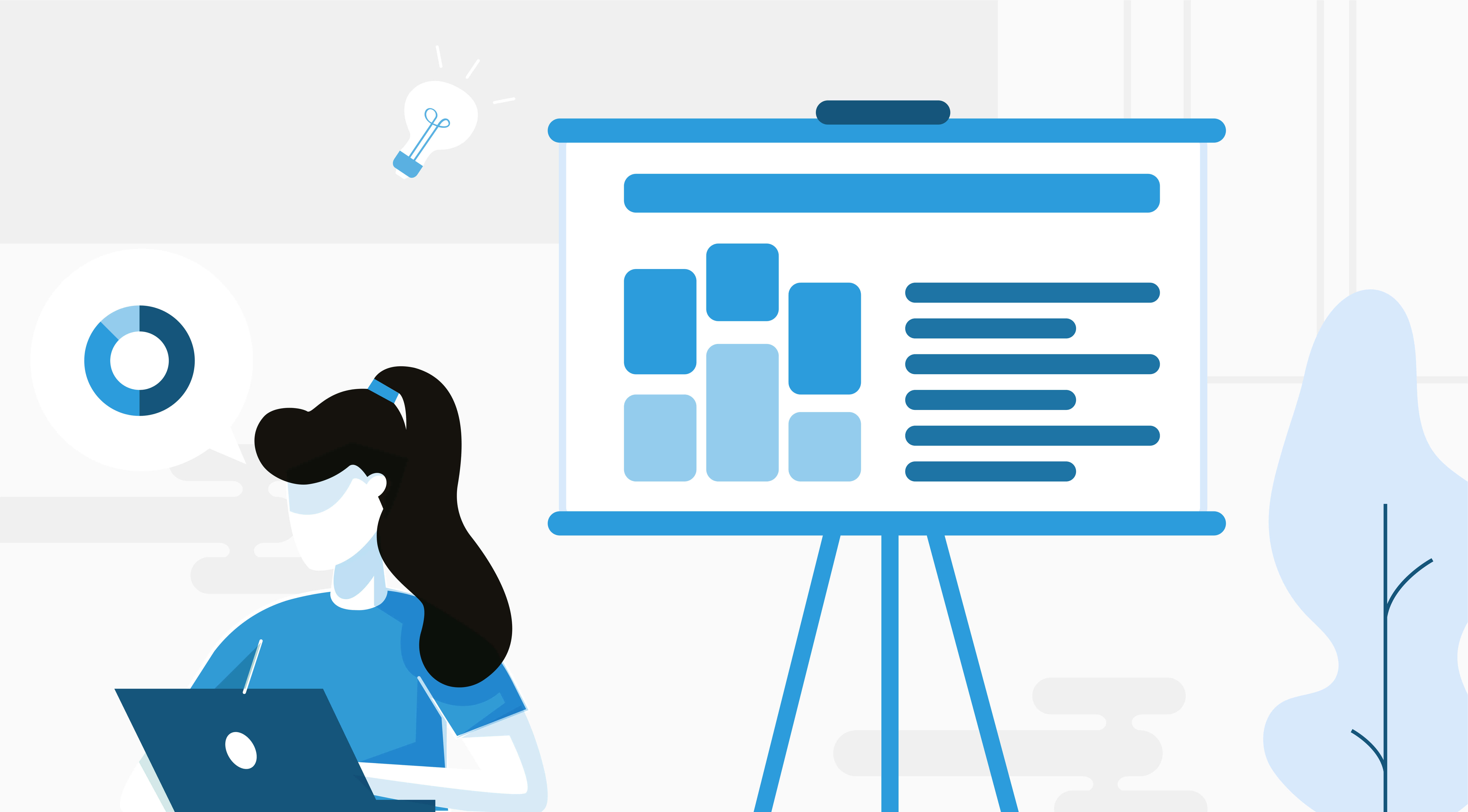Throughout the years, there have been major changes to Google Ads. All of these changes affect any agency offering PPC services—not just in terms of mastering the new features, but also in how they sell their services to clients. So I think this would be a good time to talk about how to sell PPC to clients.
In this blog post, I’ll be teaching you how to sell PPC services.
Agencies new to selling PPC services will find this useful and it will be a refresher of sorts for the more experienced agencies.
Now let’s start selling PPC!
1. Getting PPC Leads
“Where can I find PPC clients?”
It’s a common question asked by agencies who are new to selling PPC. However, the process is no different than when you’re looking for SEO leads—analyzing their performance, looking at ways to improve their campaigns, and identifying potential opportunities to help them perform better online.
Start with Clients who Already Have Ads
The easiest way to sell PPC services is by offering them to businesses that already have ads. A quick Google search can do the trick:
By looking at the websites with these ads, you can identify the ones that you can start reaching out to.
Use these guide questions when evaluating your PPC prospects:
- How is their website performing? Is their website optimized to drive traffic and conversions?
- If you click the ad, where does it send you? Does the ad direct you to a specific landing page?
- Is the ad copy effective? Does it prompt users to click and convert? Does the ad contain relevant information and keywords?
It’s best to start with a target niche and location, so you have a more refined list of prospects to qualify.
Offer PPC to Clients Running an SEO Campaign
These are your low hanging fruit.
Clients who already have an SEO campaign with you can be good prospects when you’re selling PPC services as well.
As you already have a background of how they’re performing, this provides you with additional leverage when pitching to them how they can improve their online presence.
It’s an opportunity to let clients understand how SEO and paid ads work in helping them get more online real estate.
Scale Your Lead Generation Efforts
While looking at search results is often the go-to option when looking for PPC leads, it takes time. Imagine how many clients you could have closed if you doubled your efforts.
That’s why scaling your lead generation initiatives is just as important as knowing how to sell PPC services.
Use a lead generator tool to find prospects in your target industry and location. Identify potential opportunities to help them perform better.
The faster and easier you can find leads, the more business you can get for your agency.
2. Qualifying Leads
As with any other service, you start by writing up a list of prospects. If you’re new to PPC, you want to find the clients that can help you establish a strong portfolio. This makes it easier for you to win larger accounts later on.
Go through this list and pre-qualify each prospect. Doing this with PPC can be a little tricky because campaigns can be customized to address different needs and budgets.
To keep it simple, I usually recommend agencies new to PPC to focus on two things: Fit and Readiness.
Is Their Business a Good Fit for PPC?
It’s always a good idea to prioritize pitching to the prospects that stand to gain the most from a product or service, especially when you’re building your portfolio. The businesses that are ideal candidates for a PPC campaign have at least one of the following characteristics:
High Customer Lifetime Value
Most households go back to the same dentist for routine checkups
Because they can generate considerable revenue from a single, customer businesses that typically have high customer retention or a high rate of repeat business benefit immensely from PPC.
Some of the businesses that fit this profile:
- Doctors, Dentists – Most households have only one family doctor and dentist they trust for routine check-ups.
- Auto Body Shops – In most countries, people rarely switch from one Auto Body Shop to another, as long as the service isn’t horrible.
- Subscription- or membership-based businesses – Fitness Studios and other businesses that require a subscription or membership.
A High Profit Margin
Auto dealers and other businesses that sell expensive items can benefit greatly from a PPC campaign.
Businesses whose products and services are more expensive can get huge returns on their PPC campaigns. Here are some examples of businesses that typically have high margins:
- Lawyers – A single case can net a law firm several thousand dollars—much more than the cost of the keyword they bid on.
- Expensive Consumer Products – Auto-dealers or Home Appliance Stores are some examples.
- Home Services – Depending on the scale, home repairs and other similar services can be expensive.
- Industrial/B2B Products – Aside from enjoying higher returns from selling big-ticket items, these kinds of businesses are relatively obscure. In other words, they’re usually products an interested buyer would Google for.
Seasonal Promotions
Businesses that are reliant on seasonal promotions can take advantage of PPC’s nimbleness and flexibility, especially if a relevant event is around the corner.
- Flower shops – Promotions on Valentine’s Day can get very competitive.
- Party and Event Planning Services – Especially during the holiday season.
Are They Ready for a PPC Campaign?
After you’ve narrowed down your list to these ideal candidates, try to determine whether they would be ready to implement a PPC campaign, or if there are other things that need to be addressed first.
- Website User Experience – It should go without saying that your client should have a website before they can start a PPC campaign. But they also need the capability to create dedicated landing pages for it as well. If they need a landing page for their PPC campaigns, you can recommend them to get web design outsourcing services along with your paid ads solution.
- Budget – Do they have enough budget to make a campaign worthwhile? Although you can always start small and increase ad spend later, you do want a sizable enough initial budget for an effective campaign.
3. Perfecting Your Sales Pitch
Now I’ve closed and managed PPC campaigns of all sizes: from the standard six-month campaigns with only $500 total in ad spend, to ones that are five years and running with over $500,000 in ad spend.
Some of these campaigns were in highly competitive niches like Financial Services and Promotional Gifts. Others operated in more obscure, Business-to-Business oriented niches like Storage Solutions Suppliers, Industrial HVAC and Pipework Solutions, and so on.
But no matter who I’m pitching to, whether it’s a small mom-and-pop shop or a bigger brand, the gist of my pitch always revolves around these main selling points:
- Highly-Granular Ad Targeting and Delivery – Ads are only shown to people who search for the keywords clients bid for. This can be even more precise by targeting specific locations, times, devices, and choosing which ads to display for each of these.
- Measurable ROI – The Cost-Per-Click metric makes it easy to track spending and revenue generated from the campaign.
- High Control Over Budget – Clients are only charged when someone clicks on the ad, and they can set a maximum Cost-Per-Click and a daily budget so they don’t spend more than they want to.
- Immediate Results – A PPC campaign can get up and running in a matter of hours, unlike SEO which requires more time to gain momentum.
The key to pitching PPC to a client is to show how a campaign can be customized to their exact needs.
Do they want to show a certain ad in this neighborhood between 4 and 6 p.m.? Check.
Do they want people using Google Maps to easily navigate to their nearest branch? With Local Search Ads on Maps, that’s now possible.
Do they want to bring customers to a sign-up page, a phone call, or directly to their store? You can do that, too.
The better you can match the needs of your prospect to the capabilities of PPC, the easier it will be to close that client. And as you gain experience and become familiar with various PPC tactics, you’ll find it easier to recommend a campaign even if the business doesn’t have any of the characteristics we mentioned earlier.
Pro-tip: Prepare your PPC pitch deck and other supplementary materials so you can educate your clients more about the value of having paid ads.
4. Responding to Common Objections
Just like when you’re selling SEO, you’ll also need to learn how to respond to common objections when selling PPC services. Here are a few of them:
“I already have an SEO campaign, so I don’t need PPC.”
A PPC campaign actually complements SEO very well. You can use it to determine which keywords to target and align it with your SEO campaign accordingly. If you’re already at the top spot for certain keywords, you can use a PPC to totally dominate all search results above the fold.
“I didn’t get good ROI on my PPC campaign with a previous provider.”
The best way to handle this objection isn’t to give a canned response, but to ask probing questions that can help you identify what went wrong with their previous campaign. Here are the ones that I usually ask:
-
-
- Did your previous provider set up conversion tracking?
- What keywords did you target?
- What did your landing page look like?
- Can I see the ad copy for that campaign?
- Do you have the list of negative keywords for that campaign?
- Did you run a remarketing campaign?
-
Most of the time, simply asking these questions can help you identify the flaws in the previous campaign, and you can tell your prospective client how a PPC campaign with you will go differently.
“PPC is expensive”
It’s easy to control your spending on PPC, so you never spend more than your budget allows. You can set a maximum daily budget, a maximum cost-per-click, and optimize for return on ad spend.
Key Takeaways: Start Selling PPC with More Confidence
There’s no shortcut when it comes to learning how to sell PPC services. However, if you establish a solid sales process from the get-go, you’ll be more productive and have the cadence to close more clients.
Before you forget, here are a few takeaways when selling PPC:
- Scale your lead generation: Start with clients who have paid ads running with your agency, or use a lead generation tool to make it easier for you to search for new PPC leads.
- Identify your ideal client: Qualifying leads takes away the guesswork of who needs your services. Make sure the client is a good fit for PPC.
- Prep helps you maser your PPC sales pitch: We’ve always stressed this to partners who are selling – be prepared or be prepared to lose clients to the competition.
- Keep a list of objections and how to respond to them: This allows you to control the conversation to your favor while helping clients better understand what PPC can do for them.
Ready to pitch PPC services? There’s no absolute sales formula but see how this process works for you and let us know it goes!






